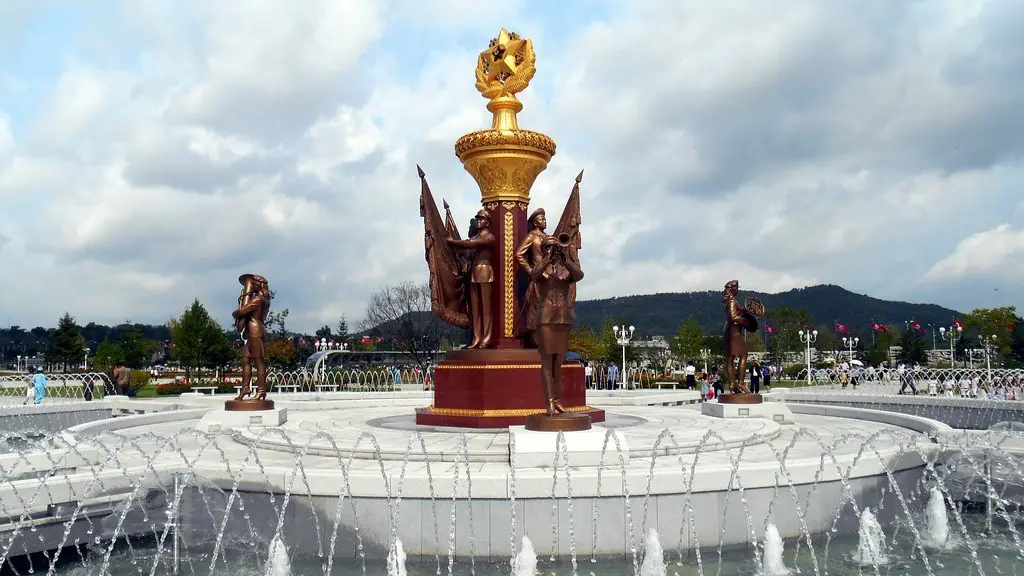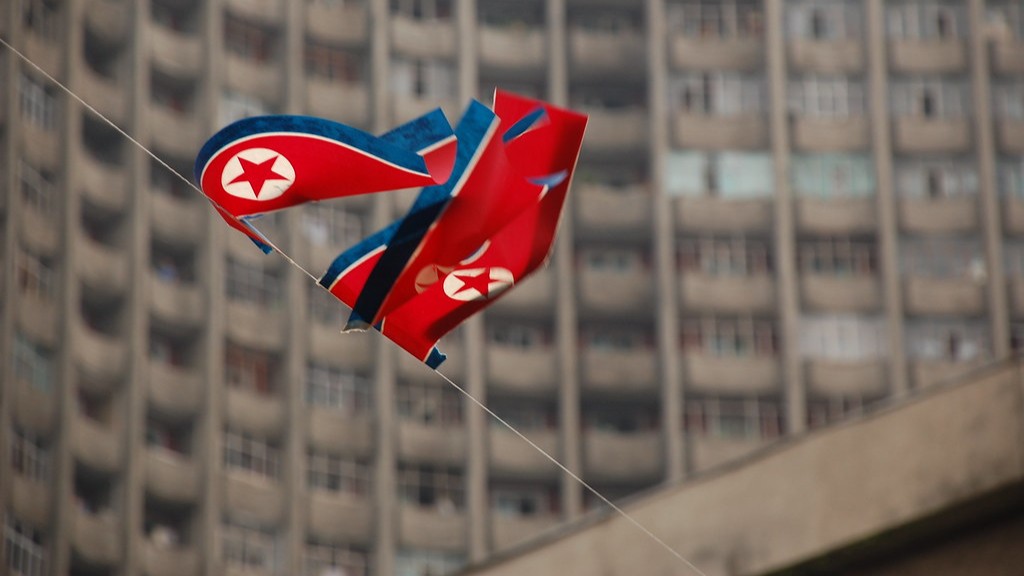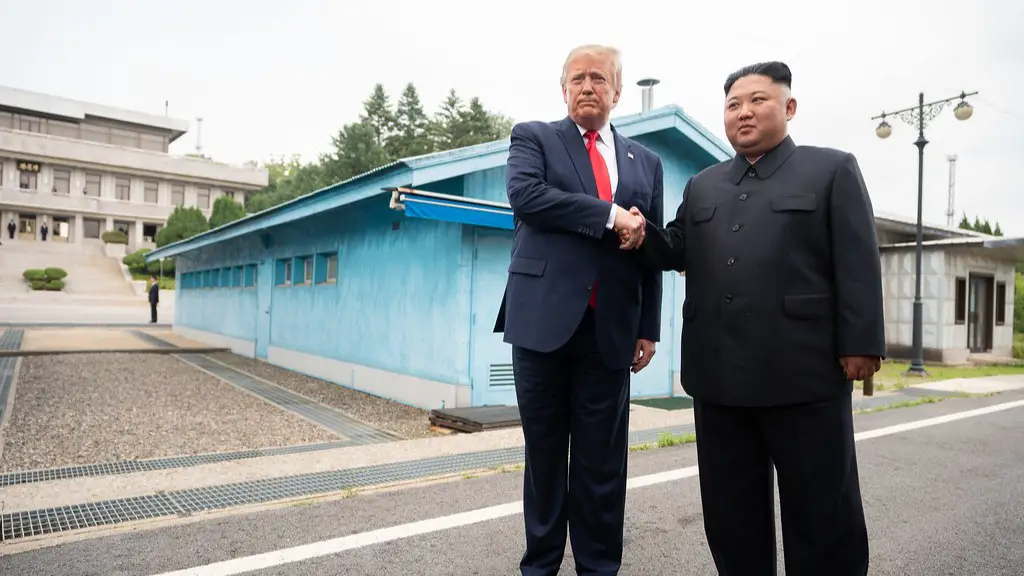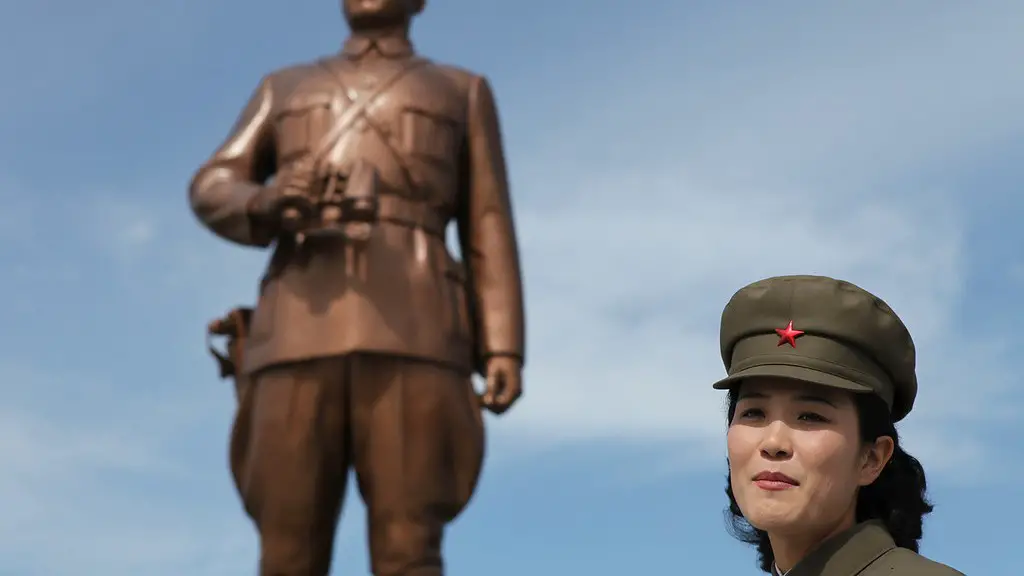What North Korea Thinks Of America remains an enigma, and as a result, many speculations arise. Over the years, North Korean citizens have been taught to view America as their enemy, but the reality is much more nuanced. To gain a comprehensive understanding of North Korea’s opinion, it is essential to examine the nation’s history, current sociopolitical environment, and statements made by the North Korean government and its people.
Despite being officially established in 1948, North Korea’s hostile views of Americans can be traced back to the early 1900s when Japan forcefully annexed the Korean peninsula. Japan subjected Koreans to deplorable living conditions and incessant exploitation, leaving resentment among its citizens for their oppressors. After the Second World War, The United States, Soviet Union, and China emerged as the victors and subsequently, divided Korea into South and North, with the 38th parallel becoming the de facto boundary between the two. The division of the country led to a period of turbulence for North Koreans that would significantly shape their outlook towards the U.S.
The Korean War of 1950-1953 further cemented North Koreans’ views of Americans. During times of the war, American troops stationed in South Korea carried out mass bombings of the North and were accused of contributing unnecessarily to the casualties and destruction in the region. Hence, the war is remembered not only as an act of aggression but also an act of terror by North Korean people.
During the Cold War, North Korea established itself as an anti-American state and adopted a policy of ‘self-reliance’ developed by Kim Il-sung, the first leader of the country. Rigidly applied principles of Juche promoted the country’s isolation from the rest of the world and reserved hostility towards America. During this period, explicit criticism of both America and the West’s policies became a part of North Korea’s narrative.
Over the years, the North Korean government has used propaganda to instill negative sentiment amongst its citizens towards the U.S. North Koreans are routinely subjected to anti-American propaganda, which is used to instill loathing, hate, and hostility towards American citizens. Experts suggest it has been successful in doing so to an extent.
While North Korea’s official stance and narrative has been consistent for many years, the country’s relationship with America and the West has been volatile. Despite hostility and threats of destruction propagated by the North Korean government, a portion of North Koreans remain optimistic regarding the U.S. With the entry of South Korean President Moon Jae-in, who advocates for peace and diplomatic ties with North Korea, optimism towards the U.S.-North Korea ties is more prominent.
North Korea’s View On Human Rights
Since the country’s origins, North Korea has always been an authoritarian state that rigorously exercises power to control and suppress its citizens. Reports regarding the violation of human rights, forced labor, systemic discrimination, widespread famine, and lack of freedom of speech or movement have been extensively discussed in the media. North Koreans are denied the right to access foreign news sources, exacerbated by the high rate of illiteracy in the region and poor connectivity, Moreover, citizens have no access to social media platforms such as Facebook, Twitter, and YouTube. Reports by the UN identify a broad range of human rights violations within the country and have condemned North Korea’s ruthless approach to suppressing its citizens.
The North Korean government considers the notion of human rights a peculiar form of Western neo-imperialism created to undermine its authority and is highly sensitive to criticism about its conduct. Hence, speaking out against the government’s human rights violations has been criminalized and severely punished. Reports suggest that close to 200,000 North Koreans have been detained in political prison camps, some of which have been declared criminal by the United Nations.
Given the amount of criticism from the international community, North Korea has shifted its stance during diplomatic negotiations. The country has increasingly acknowledged its human rights records, however, it unsurprisingly maintains its staunch anti-American narrative. In recent years, foreign inspections and access to North Korea have been limited, further contributing to the country’s limited movement towards better human rights.
North Korea’s Relationship With The United States
Since the Cold War, North Korea and the United States have shared a tense relationship culminating in a variety of diplomatic impasses and disagreements. Despite numerous talks between the two countries, exploring the possibility of resolutions, the diplomatic relationship has remained unstable. Former Presidents, George W. Bush and Barack Obama, adopted rigorous policies to contain the North Korean nuclear agenda and supported international sanctions against the hermit state. On the other hand, both the Presidents have also reportedly initiated talks with North Korea in an attempt to establish deterring systems and to avoid hostile conflict.
However, former President, Donald Trump’s, inclination towards diplomacy with North Korea displayed a radically different approach. The President’s tactics involved tough negotiations with North Korean leader, Kim Jong-un and emphasis on direct talks instead of sanctions. The North Korean administration viewed President Trump’s tactics as a sign of weakness. The leader has also reportedly sought to exploit the president’s desires to maintain a friendly relationship and reject any criticism towards his leadership.
Experts suggest that there is an internal power struggle between the two leaders, which has further affected the two countries’ diplomatic ties. Despite negotiations taking place in 2018, the hostility between the two countries has grown, and North Korean officials have continued to propagandize negative sentiment towards the United States.
North Korea’s Public Reactions To America
In North Korea, citizens have been taught to view America as their enemy, as it has been a part of the nation’s narrative for many years. But in recent times, experts suggest North Koreans are increasingly displaying nuanced views of their American ‘opponents’. Reports suggest that North Koreans have started demanding access to the internet, greater access to foreign films, and reforms in their government. This has culminated in the formation of a large underground network of North Koreans who are eager to access international information about the West, including news about the United States.
The North Korean government has punished its citizens for being in touch with the American culture. But reports suggest that these citizens have continued to access foreign films, literature, and films, which brings to life the real-life scenarios of the American culture and make it easier to understand life abroad. This has allowed them to develop a more independent and well-rounded opinion of their ‘opponent’.
Despite its rigid censorship policies and control of the media, North Koreans have found ways to access films and literature that depict life in America and hold an honest opinion. Most North Koreans view the United States as both an enemy and a source of hope and aspiration, signifying a complex relationship between the two countries.
Understanding North Korea’s View On America
Although North Korea has officially proclaimed to view America as its enemy, the reality is that North Korea’s opinion of the United States is far more nuanced than what its media suggests. North Korea’s relationship with the US has remained tumult since their confrontation in the Korean War, however, some of the North Korean people express growing optimism towards America.
The state’s views towards the United States have shifted over the years, however, its negative stance towards the US can be found in its propaganda, which emphasizes the feeling of mistrust and animosity held by North Koreans towards the country and its ideals. Despite the rigid and impenetrable control of the North Korean government over its citizens, individuals have found ways to access foreign films and literature that offer a more realistic view of the American culture.
Finally, it is essential to understand that North Koreans have been conditioned to loathe the United States, however, this has partially been a result of the nation’s history and the repeated propaganda. In times of volatile diplomatic ties, it is necessary for both the countries to cultivate a better understanding of each other, so that politically and diplomatically, new grounds of coexistence can be established.
North Korea’s Unique Relationship With China
North Korea has an incredibly unique relationship with its neighbour and ally, China. Past attempts of persuasion of the Chinese and U.S.s governments were ineffective and resulted in increased tensions between the two. Hence, China plays an influential role in communicating with North Korea, acting as a buffer between the two countries. China has consistently emphasised the importance of dialogue between the two and has reportedly attempted to broker talks between them.
Despite the Korean War ending in an armistice, North Korea and China have signed a series of treaties that reinforce their formal diplomatic relationship. Through these treaties, China provides economic aid and military support to North Korea. China circumvented numerous international sanctions on North Korea, allowing Pyongyang to maintain access to the Chinese market and allowing Chinese companies to continue trading in North Korea. Thus, China has been pivotal in providing North Korea with the resources for its advancement.
Nonetheless, some North Koreans perceive China as a hegemonic power using its own interests to dictate North Korean policy. Reports suggest that the North Korean government is becoming increasingly aware of the Chinese’ ulterior motives in controlling the region. As a result, North Korea has started to distance itself from China while maintaining a carefully calibrated relationship.
North Korea’s Relevance In The International Disputes
North Korea has often been a topic of discussion in international debates, due to its threats of aggression, nuclear armaments, and human rights violations. It has been known to breach international laws and undertaken clearly aggressive and provocative actions. The international community has widely criticised the state, resulting in the UN and U.S.s governments imposing numerous sanctions against it
Since 2018, the US and North Korea have reinforced diplomatic ties, however, in 2019, North Korea warned the US of ‘grave consequences’ if diplomatic compromise is not met. It also resumed nuclear production and tested intercontinental ballistic missiles that can reach beyond North Asia, thus raising tensions within the region. Reports suggest that the North Korean government is attempting to gain leverage by developing its nuclear capabilities and rejecting potential agreements, making the US appear uncooperative and ineffective.
Satellites have also identified North Korea smuggling petroleum product in large quantities, which is a violation of the international sanctions imposed against it. Furthermore, the state has been accused of managing an expansive network of cyber-criminals that are able to prey on financial institutions, which then funnels the money back to Kim Jong Un and the North Korean military.
Given the fact that North Korea has access to nuclear technology and is actively pursuing technological advancements, the nation will remain a significant factor in international disputes. As a result, it is essential that the international community continues its efforts to contain the state, create diplomatic resolutions, and improve its human rights conditions, so that peace and stability return to the Korean Peninsula.





